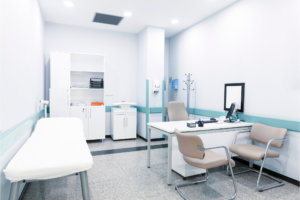Created by South African, Dr Marius Barnard in 1983, trauma insurance is aimed at providing people with financial protection against serious medical conditions such as cancer, heart attack, stroke or an accident. While 1983 may seem like a lifetime ago, trauma insurance remains as important as ever. Over the years the cover has become more robust, providing a lump sum payment upon diagnosis of approximately 40 different conditions.
As we are all aware, conditions such as cancer do not discriminate and can strike anyone. However, advances in treatments have meant that people are now surviving things that they may not have in the past. Broadly speaking, the 5-year cancer survival rate has improved significantly to 69% for women and 68% for men1.
The average financial cost of cancer is approximately $115,000 however the financial toll of leukemia and brain cancer can be much greater; $258,000 and $325,000 respectively. Conversely the average cost of breast and prostate cancer is $65,0002.
Financial costs of being diagnosed with a trauma event not only includes treatment and medication but also the loss of personal income or the income of your spouse/carer. Trauma insurance provides a lump sum that could help alleviate the financial burden that an illness like this can cause and allow you to concentrate on your recovery.
The benefit received can be used to fund non-traditional treatments, modifications to the home, cover the costs of your spouse taking time off work to care for you or even a holiday to help you rest and relax.
Here are a few statistics to consider:
- An estimated 134,000 new cases of cancer will be diagnosed in Australia this year, with that number set to rise to 150,000 by 2020.
- 1 in 2 Australian men and women will be diagnosed with cancer by the age of 85.
- Stroke is one of Australia’s biggest killers and a leading cause of disability.
- In 2018 there will be over 56,000 new and recurrent strokes. That is one stroke every nine minutes.
- Around 30% of stroke survivors are under the age of 65.
- 65% of stroke survivors suffer a disability which impedes their ability to carry out daily living activities unassisted.
- Each year, around 54,000 Australians suffer a heart attack. This equates to one heart attack every 10 minutes.
DPM are here to help you understand how to reduce the financial impacts of serious illness and the steps you need to take to build a plan that matches your personal circumstances and changing needs.
If you’d like to chat to one of our personal insurance experts about your personal circumstances and find out how your future can be safeguarded, book a no-obligation initial consultation or call 1800 376 376.
Disclaimer: * The information contained in this site is general and is not intended to serve as advice as your personal circumstances have not been considered. DPM Financial Services Group recommends you obtain personal advice concerning specific matters before making a decision.
References:
1 – https://canceraustralia.gov.au/affected-cancer/what-cancer/cancer-australia-statistics
2 – https://www.cancercouncil.com.au/wp-content/uploads/2010/11/costofcancer_costs.pdf
3 – https://www.cancer.org.au/about-cancer/what-is-cancer/facts-and-figures.html
4 – https://strokefoundation.org.au/About-Stroke/Facts-and-figures-about-stroke
5 – https://www.heartfoundation.org.au/about-us/what-we-do/heart-disease-in-australia





